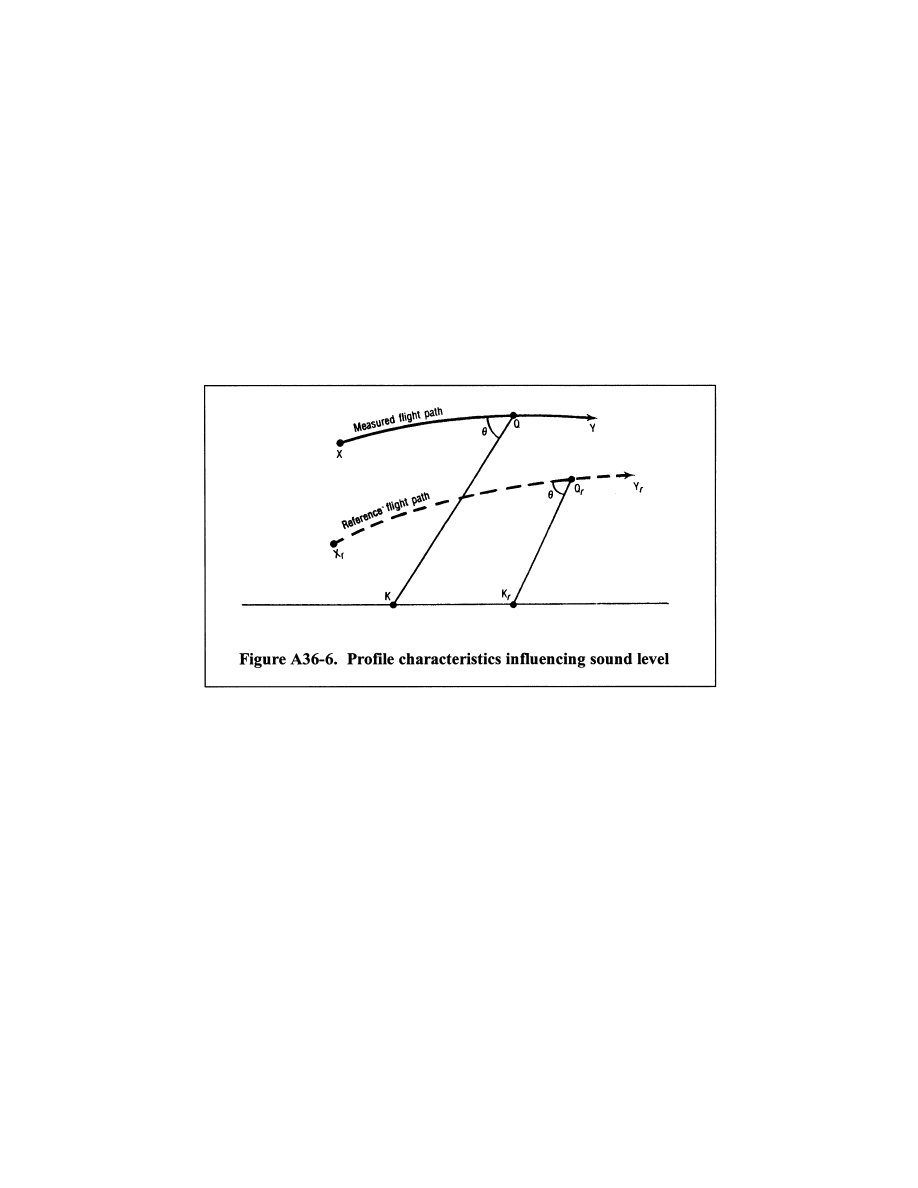
799
Federal Aviation Administration, DOT
Pt. 36, App. A
(1) XY represents the portion of the meas-
ured flight path that includes the noise time
history relevant to the calculation of flyover
and approach EPNL; X
r
Y
r
represents the cor-
responding portion of the reference flight
path.
(2) Q represents the airplane’s position on
the measured flight path at which the noise
was emitted and observed as PNLTM at the
noise measuring station K. Q
r
is the cor-
responding position on the reference flight
path, and K
r
the reference measuring station.
QK and Q
r
K
r
are, respectively, the measured
and reference noise propagation paths, Q
r
being determined from the assumption that
QK and Q
r
K
r
form the same angle
q
with their
respective flight paths.
(b) The portions of the test flight path and
the reference flight path described in para-
graph (b)(1) and (2), and illustrated in Figure
A36–7(a) and (b), include the noise time his-
tory that is relevant to the calculation of
lateral EPNL.
(1) In figure A36–7(a), XY represents the
portion of the measured flight path that in-
cludes the noise time history that is relevant
to the calculation of lateral EPNL; in figure
A36–7(b), X
r
Y
r
represents the corresponding
portion of the reference flight path.
(2) Q represents the airplane position on
the measured flight path at which the noise
was emitted and observed as PNLTM at the
noise measuring station K. Q
r
is the cor-
responding position on the reference flight
path, and K
r
the reference measuring station.
QK and Q
r
K
r
are, respectively, the measured
and reference noise propagation paths. In
this case K
r
is only specified as being on a
particular Lateral line; K
r
and Q
r
are there-
fore determined from the assumptions that
QK and Q
r
K
r
:
(i) Form the same angle
q
with their re-
spective flight paths; and
(ii) Form the same angle
y
with the
ground.
N
OTE
: For the lateral noise measurement,
sound propagation is affected not only by in-
verse square and atmospheric attenuation,
but also by ground absorption and reflection
effects which depend mainly on the angle
y
.
VerDate Sep<11>2014
12:50 Apr 30, 2019
Jkt 247046
PO 00000
Frm 00809
Fmt 8010
Sfmt 8002
Y:\SGML\247046.XXX
247046
ER08JY02.016</MATH>
spaschal on DSK3GDR082PROD with CFR